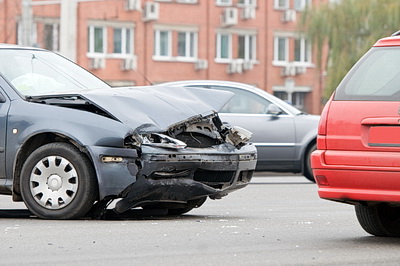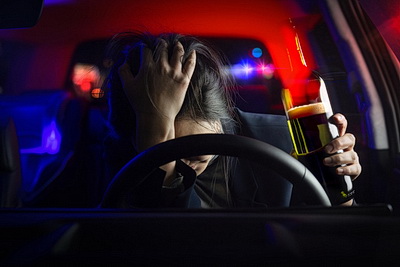Alcholol Overview
When we are at night clubs, parties, social gatherings, or just in our own house, the temptation to drink alcohol can be overwhelming, especially for those of us who are frequent drinkers. Still, we know what it can do to our bodies, the least of which is our brains.
That said, we will not dwell on every aspect of what this potentially dangerous liquid can do to each of our bodies. Instead, we will focus on just one organ—the brain.
Think of this article as a handy guide for those who want a quick summary of the issues related to what alcohol can do to our brains. We will, of course, supply links where you can get further information if you like. Let’s start!
In the Beginning
When you drink alcohol, your body will absorb it pretty quickly, mainly through your stomach and small intestine, especially for those not experienced with drinking this substance. It doesn’t take long before it gets into your bloodstream, and then the dangers begin.
Your Brain
How does alcohol affect our brains? This is the organ most of us want to know about. Well, here’s the rundown.
It affects our neurons. What does that mean? If you recall our article on neurons, they are cells in the brain that transmit information to and from the nervous system. Just imagine what can happen if this information is transmitted incorrectly! Alcohol does this by disrupting the communication between the neurons, which can lead to all kinds of risky endeavors. Let’s delve deeper.
Impaired Distance

Because the neurons are not communicating correctly, alcohol will impair your brain’s ability to process distance. It’s that straightforward. It will slow down your brain’s reaction time and disrupt your depth perception, making it harder to accurately judge how far away objects are. Additionally, reacting quickly when those judgments are thrown off makes it difficult.
Bottom line: It makes it difficult to tell how far away things are or how to get around them properly.
It’s Depressing
Alcohol is a depressant, which means it slows down your brain functions. This happens because alcohol affects your central nervous system, and your central nervous system communicates with your brain. Putting 2 and 2 together, you have a potential catastrophe if you are drunk and operating a motor vehicle. Even if your neurons communicate correctly (and let’s be honest, they probably won’t be if you’ve had too much), it can lead to some pretty dangerous situations. If you’re driving and a car suddenly hits the brakes in front of you, or if someone steps out onto the street, your reflexes won’t be quick enough to hit the brakes in time.
Bottom Line: Your coordination and judgment will be severely impaired.
I Don’t Remember Anything!

This blog would not be complete without discussing what this drug does to your memory.
First, let’s talk about the hippocampus. This is the part of our brain that helps us create new memories, but it doesn’t like alcohol much. This is why people sometimes experience blackouts or just don’t remember anything from the previous night when they had a few too much.
This annoying event occurs because your neurotransmitters are disrupted. These are the communicative chemicals that are transmitted between the neurons. And these chemicals, like glutamate, are crucial for making and recalling memories.
If someone keeps drinking heavily over a long period, it can lead to even more serious memory problems. Prolonged drinking can actually damage brain cells and might lead to cognitive decline or conditions like alcohol-related dementia so with this type of drinking, your long-term memory can be damaged, but worse, you can have problems remembering things with your day-to-day activities, so get ready for that pink slip!
If that’s not enough to keep you from alcohol, there is Wernicke-Korsakoff syndrome. This is a serious memory disorder that affects individuals who drink heavily for a long time, mainly because they’re lacking thiamine (that’s vitamin B1). It causes severe memory loss, confusion, and trouble creating new memories.
Summary
Acholol disrupts the neurons and communication in your brain and can do the following to you:
- Impair your depth perception. This is perhaps the most dangerous factor, as you can get hurt just walking down the street, and if you are too ignorant to drive, you can injure or kill yourself or others. Yes, we are being very blunt here!
- Not thinking clearly. Disruption of normal brain communications can lead to disorientation, subsequently causing you to go somewhere you shouldn’t be physically. If driving (yes, we are including the obvious), you can end up on the wrong side of the road, resulting in possibly killing others or yourself.
- Depression. Besides the awful feeling, your reaction time is diminished.
Conclusion
Drinking alcohol can have a variety of effects on the brain, ranging from impaired judgment to long-term damage, but its most immediate and dangerous consequence is drunk driving. Driving under the influence endangers the driver and other road users. The severe consequences include accidents, potential fatalities, and, of course, having to deal with legal consequences that can range from getting arrested to being sued (or both).
Acting responsibly, planning ahead, and avoiding driving while intoxicated is essential to prevent these outcomes. The choice to drink and drive can have irreversible impacts, but by making more intelligent decisions, you can protect yourself and others on the road.
Getting Help!
For help, you can start with the National Institute of Alcohol Abuse and Alcoholism. Also, go to Alcoholics Anonymous, and if things are really serious to the point that you don’t want to live anymore, try 998lifeline.org and the National Institute of Mental Health.
